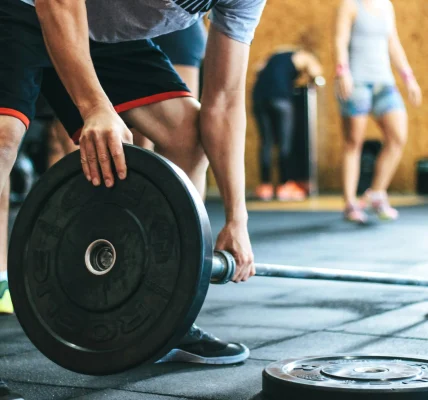Nutrition remains among the most pivotal elements involved in the realization of fitness goals—be they an increase in muscle mass or body fat, or just basically living a life of health. Nonetheless, nutrition is an area bombarded by myths that might mislead anyone down a path of disturbed progress and health. Let’s plunge into some common myths about nutrition that may be obstructing your fitness journey.
1. Carbs Are the Enemy
Probably one of the biggest rumors to date is that carbohydrates are your destroyer when you want to drop those pounds and reach your goals. Not again, but that is just a myth because all carbohydrates are not alike, and getting rid of them completely can make things worse than they may already seem.
Carbohydrates as Fuel: The human body gets its energy from one major source, which involves the consumption of carbohydrates. There is a possibility of fatigue and decreased performance capability when this element is completely eliminated.
Carbs: Complex vs. Simple. While complex carbs—whole grains, vegetables—release energy slowly over a long period, simple carbs can be hyperglycemic, and sugar is a major contributor. The key is to focus on quality, not total avoidance.
Overall Approach: For most individuals, a balanced diet with whole-food carbohydrate sources will meet the health, fitness, or fat-loss objectives superior to a diet low in carbohydrates.
2. Fat Eating Makes You Fat
The idea that food fat is inherently fattening is a very archaic idea based on extremely old studies, which have long since been proven wrong. In truth, good fats are an integral part of optimal health and can actually assist in reaching your fitness goals.
Essential for Hormone Production: Fats are responsible for healthy hormones, including testosterone and estrogen synthesis, both important in muscle building and recovery.
Supports Satiation: Healthy fats help keep you satiated, like from avocados, nuts, and olive oil, hence reducing overeating.
Focus on Quality: Not all fats are created equal. Unsaturated fats and omega-3 fatty acids are good, but trans fats are best avoided.
3. You Must Drink Protein Shakes to Build Muscle
While protein is important in the building and repair of muscles, the idea of taking protein shakes is a misconception.
Focus on Whole Foods First: Foods such as eggs, chicken, and beans provide not only protein but a number of other key nutrients that shakes lack.
Supplements for Convenience: Protein shakes can be helpful for individuals with greater needs, or for those without the time or inclination to cook, but most of us do just fine without them.
Balance Your Intake: Meet your daily protein needs by eating whole foods with shakes as an occasional supplement if needed.
4. Eating Late at Night Causes Weight Gain
Somehow, this notion exists that when one eats beyond the hour, one automatically gains weight. However, the process of weight gain is a bit more complicated than that.
Total Caloric Intake Matters: When one takes in more calories than they expend, no matter what time of day it may be, that’s when weight gain occurs.
Late-night snacking is also related to poor food choices. Individuals who snack late at night have a tendency to consume higher-caloric, less healthy foods.
Listen to your body: If you are truly hungry at night, having a light snack is not going to hurt, especially if you make nutrient-dense choices, such as Greek yogurt or nuts.
5. Detoxes and Cleanses Are Necessary for Weight Loss
These days, detoxes and cleanses are super popular for “resetting” the body, but they’re often quite unnecessary and can even be harmful.
The Body’s Natural Detox System: Your liver and kidneys do such a great job of naturally detoxing your body, so cleanses are somewhat superfluous.
Short-term Results: While some individuals may experience quick weight loss, it’s often water weight that comes back after going back to normal eating.
Sustainable Changes Over Quick Fixes: Instead of cleanses, balance your diet with regular exercise to offer longer-term success.
6. Gluten-Free Diets Are Healthier for Everyone
Gluten-free diets are perceived as a healthier option; however, this is actually only true for individuals with specific gluten-related health conditions.
Only Some Require It: Gluten-free diets are crucial for those affected by celiac disease and gluten intolerance, while others have no added value at all.
Lacking Certain Nutrients: Most gluten-free products are made from refined flours that lack fiber and B vitamins, among other nutrients that ensure good health.
Focus on Whole Grains: Whole grains containing gluten like wheat and barley have fiber that aids digestion and promotes feelings of fullness.
7. Low-Fat Foods Are Healthier
Scores of people have been hoodwinked by the low-fat propaganda of a couple of decades ago, so now they think fat-free and low-fat foods are automatically healthier—this isn’t always so.
Added Sugars and Chemicals: Many low-fat products are packed with added sugars and chemicals that give them a better taste but are quite the opposite when it comes to health.
Healthy Fats Support Absorption: Healthy fats support the absorption of some fat-soluble vitamins, including A, D, E, and K. Utilizing low-fat versions could be extremely damaging regarding one’s intake of such nutrients.
Look Beyond the Label: Ditch the low-fat mentality and focus on whole, minimally processed foods that contain natural fats.
8. All That Matters Is Calories
Yes, calorie balance—calories in versus calories out—is an important variable when it comes to weight management. However, it isn’t the sole important variable when it comes to fitness and health.
Nutrient Density Counts: While 200 calories of leafy greens may technically be equal in energy compared to 200 calories of candy, they are most certainly not providing the same nutritional value.
Macronutrient Ratios Matter: Knowing what works best for you—protein, carbs, and fats because each plays a different role in the body—will help improve performance and recovery.
Quality Over Quantity: This is due to the idea that eating for volume, as opposed to nutrient-dense food, serves better for overall health and supports fitness goals more.
9. You Shouldn’t Snack Between Meals
The idea here that snacking cuts the edge off your progress is because of the idea that snacking leads to overeating.
Balanced Snacking for Sustained Energy: Healthy snacks include a handful of nuts, yogurt, or fruits; it gives energy and avoids excess eating at mealtimes.
Supports Workout Recovery: Post-workout snacks that contain protein and carbs can aid in building and repairing muscles, refueling glycogen stores.
Listen to Your Hunger Cues: One could snack healthily provided the attitude is right. The secret is to choose nutritious, portion-controlled snacks that help meet your exercise needs.
10. More Protein Does Not Equate to Better Results
Protein is a nutrient responsible for the repair and building of muscles, which doesn’t imply that the more protein one ingests, the better results they get.
Extra Protein Is Not Stored as Muscle: The human body only utilizes a certain quantity of protein to repair the muscles. When that extra protein is not utilized by the body, then it is transformed into fat.
Everyone’s needs vary, and it is dependent on great variables like body weight, age, activity level, and goals. Taking more than what the human body needs does not translate into better results.
Balance Protein with Other Nutrients: A balanced approach with adequate carbohydrates and fats must be considered for sustained energy and optimal performance in fitness.



